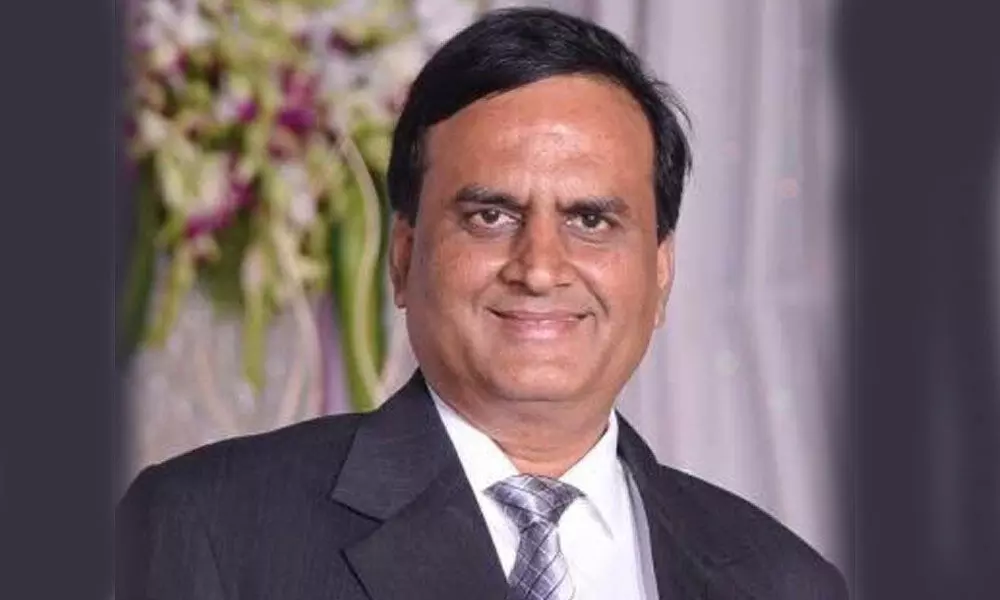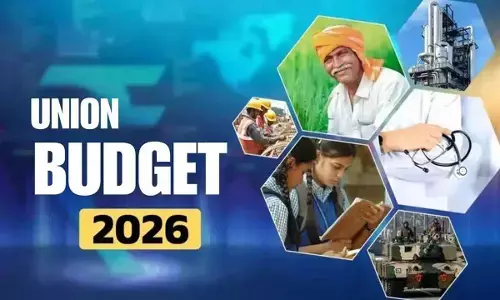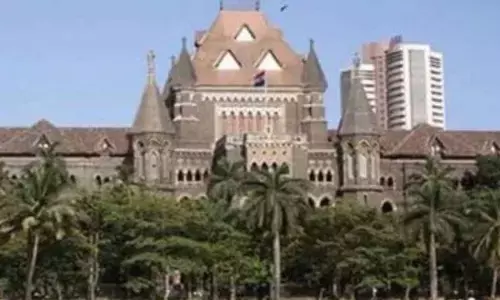Bengaluru textile & garment traders launch postcard campaign against GST hike

Bengaluru textile & garment traders launch postcard campaign against GST hike
Bangalore Wholesale Cloth Merchant Association have urged the Union government to drop the proposal to increase GST (Goods and Service Tax) on garments and textile industries from 5 percent to 12 percent.
Bengaluru: Bangalore Wholesale Cloth Merchant Association have urged the Union government to drop the proposal to increase GST (Goods and Service Tax) on garments and textile industries from 5 percent to 12 percent. With effect from January 2022, the government has raised GST on finished goods such as garments, textiles, and footwear from 5 percent to 12 percent.
In a unique campaign, the association has decided to send postcards to the PMO (Prime Minister Office) daily from all the shops here in Bengaluru against the proposal. "From Karnataka alone we are sending 3,000 cards daily. Every shop is sending a minimum of five cards daily," says Bangalore Wholesale Cloth Merchant Association President Prakash Pirgal.
In a letter to Union Minister of Finance Nirmala Sitharaman, the association president stated, "A humble request to maintain status-quo: The textiles and garments shop owners are shocked to note the recommendations at the 45th GST Council Meeting, to Increase the G.S.T from existing 5 to 12 percent from 1 January 2022. [Increase by 140 percent]. Always our Government promotes roti, kapada and makan - the basic necessities of life at utmost minimal prices, so that almost every citizen of India, even below BPL could afford these basic necessities of life."
"One can see that our government subsidises the rates and makes them tax-free too, to be economical for all to afford these basic necessities and most of our textiles and garments manufactures come under above bracket. But it is terrifying to note that our government is contemplating increasing GST, on textile and garments from 4 percent to 12 percent.
This will create a negative impact and affect the total textiles and garments trade and industry, thereby resulting in the closure of lakhs of factories and shops which cause unemployment to thousands of people and loss of revenue to the exchequer," Prakash Pirgal mentioned. He said, almost 85 percent of textile trading shops and manufacturers are in the small and medium sector and are below Rs 40 lakhs turnover per annum and not in the GST ambit. But all pay GST on their purchases and contribute to government exchequer. "Please note that the GST of 5 percent is fully borne by these small traders and industries, and not passed to consumers," he explained.
"If the GST is increased, this would be a very huge burden to bear for our small and medium traders who may either pass on to consumers, which would cause inflation, or find it tough to compete with larger stores and are finally forced to shut down business," he further explained. He expressed the fear that several textile shops employing 4 to 10 people could vanish unable to bear the GST increase.
Any increase in GST could create a cascading negative effect and lead to the small and medium shops closure which directly leads to unemployment, Prakash said. "This colossal job loss would affect other trades namely hotel industry, travel, cargo, packaging and transportation. We are afraid that the loss of employment among illiterates, uneducated, handicap persons, now employed in small and medium businesses may lead to jobless starvation, suicide, arson and looting."














